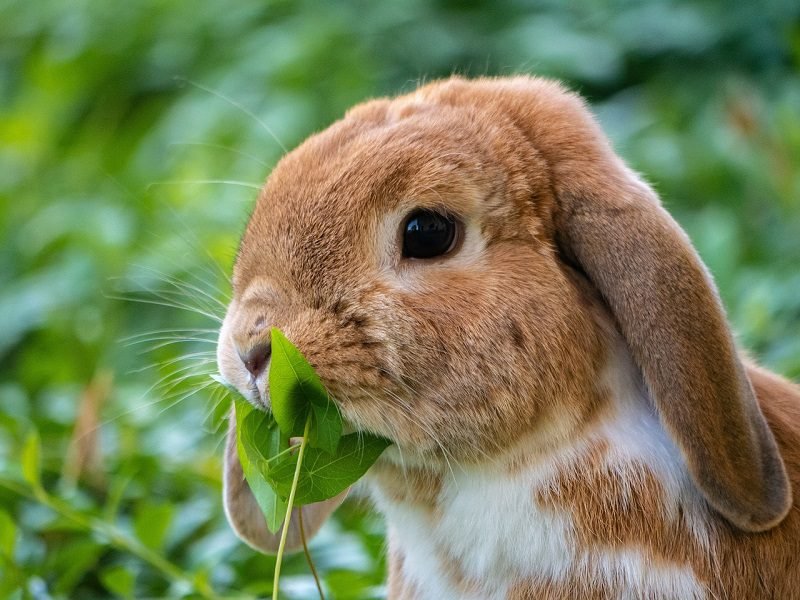Top tips to take care of your rabbit
This Lunar New Year celebrates the Year of the Rabbit, and while those born in the lunar year are believed to have a number of different personality traits from patience and ambition to stylish and beautiful, pet rabbits are known to love companionship of their own species and space to play, run and hop.
PDSA Vet Nurse Nina Downing said: “Rabbits remain a popular choice of pet for many families.
“A rabbit’s quality of life, their health and wellbeing all depend on their environment, it has a huge impact. The better their living space, diet and company they crave, the happier they’ll be!”
Living space
Rabbits can live indoors or outdoors, but a hutch is not at all enough – they need lots of space and boredom busters to keep them active.
Whichever you choose, it’s really important that their living space is large and tall enough for them to run around, lie down and fully stretch out plus jump as high as they want.

They need a secure, sheltered space to relax, sleep, eat and drink, as well as a exercise area, which is free from anything dangerous.
It’s natural for rabbits to want to dig, so be prepared that outside runs will need to be bunny proofed, as well as predator proofed and if your rabbits live indoors, you’ll need to provide a digging zone, so they can burrow!
Bedding and toys
Your rabbits need comfortable, absorbent, clean bedding such as newspaper, non-clumping wood-based cat litter pellets, and soft straw.
You’ll need to give them places to hide and explore. Tunnels, boxes, balls, and a large litter tray full of soil will keep them entertained for hours!
Companions
Rabbits are very sociable animals that should never be kept alone.
It’s vitally important that they have the company of at least one other (neutered) rabbit.

As prey animals they also rely on their companion to feel safe, working as a team to look out for and alert each other to potential dangers.
They snuggle together to keep warm and mutually groom to keep clean and stay bonded.
We recommend keeping neutered pairs – ideally one male and one female.
Diet
They must have constant access to feeding hay, even outdoor rabbits will need this in addition to fresh grass, as rabbits graze a vast area which is almost impossible to recreate in captivity.
Rabbits also need leafy greens, vegetables and herbs twice daily alongside a tablespoon of complete rabbit nuggets given once a day or twice if your rabbits are over 3.5kg.
Don’t forget to give your rabbits constant access to clean, fresh drinking water.

Low maintenance pets?
Rabbits, if given the right environment and all their needs are met can be delightful pets.
They aren’t recommended as children’s pets because their natural instinct is to scratch, bite and leap if they become worried or frightened.
Neutering is recommended.
Your bunnies will need lots of attention every day and need regular vaccinations and vet care.
Picture: Pixabay/Pexels
